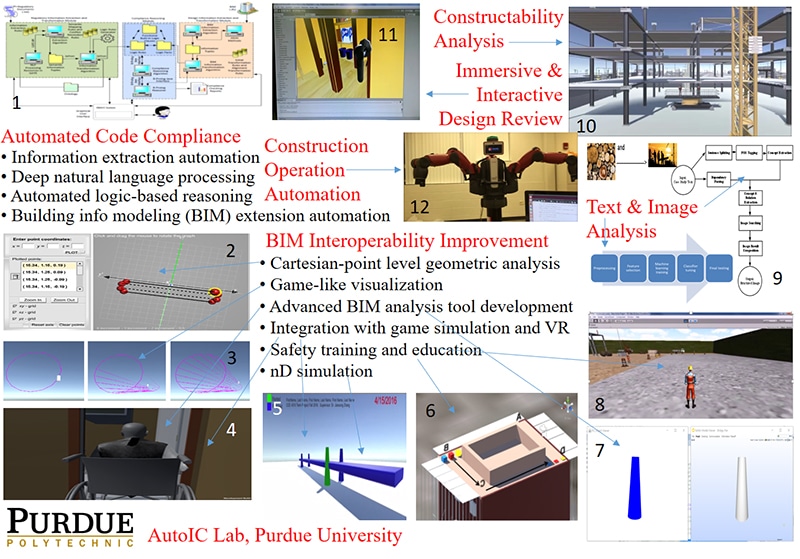Jun 19 2019
Artificial intelligence (AI) and robots have important roles to play as planners in designing the cities of the future. The architecture, engineering, and construction (AEC) industry is facing a big transition in balancing the huge amounts of data available via modern technologies.
 (Image credit: Purdue University)
(Image credit: Purdue University)
The system they use, known as building information modeling (BIM), captures all the data points and information to form plans at all phases of construction — from planning to maintenance to demolition. Scientists at Purdue University have developed a new way to tackle the data, streamline the BIM software, and help in producing future city layouts.
The Purdue team formulated a new technique for better insight and using industry foundation classes (IFC), which is the term given to the data used to produce the BIM software.
It normally requires a large amount of effort when manually interpreting IFC data due to its large number of entities and the complex connections between one entity and another. Our technology helps BIM software developers create IFC-based solutions for any task in the life cycle of an AEC project.
Jiansong Zhang, Study Lead and Assistant Professor, Polytechnic Institute, Purdue University
Zhang said the new technology facilitates complete software development based on IFC data.
“We created a visualization algorithm and implemented it based on the new method we developed,” said Zhang, who also leads Purdue’s Automation and Intelligent Construction Lab. “The new method can help eliminate missing or inconsistent information during software development.”
The data encompasses all functions, sectors, and life cycle stages of software development for construction projects.
Zhang and his team are involved with the Purdue Research Foundation Office of Technology Commercialization on patenting and licensing the technology. They are seeking partners who are keen on licensing it.
The work is in keeping with Purdue's Giant Leaps celebration of the university’s global progress made in AI as part of Purdue’s 150th anniversary. It is one of the four subjects of the yearlong celebration’s Ideas Festival, set up to highlight Purdue as an intellectual center solving real-world problems.